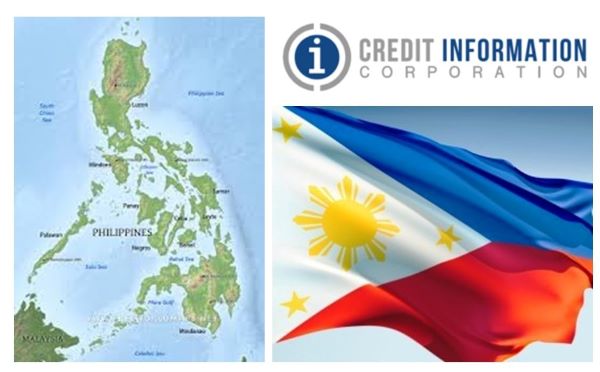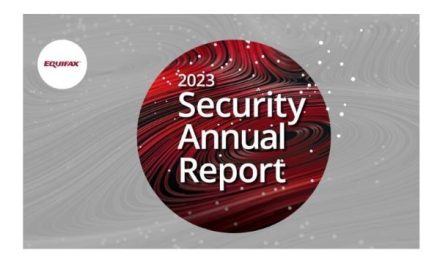MAKATI CITY, 24 September 2021 – Credit Information Corporation (CIC), the Philippines’ sole public credit registry and repository of credit information, presented the reforms and policies spearheaded by its new management during its very first online exposition on 17 September 2021.
Entitled “CIC 2.0: Reforms and Policies for a Strengthened Credit Registry,” the virtual event was attended by 985 representatives from its registered financial institutions including universal and commercial banks, rural and thrift banks, cooperatives and cooperative banks, lending and financing companies, microfinance institutions, savings and loan associations, insurance companies, government financing institutions, mutual benefit associations, and even fintech companies.
 “While the COVID-19 pandemic disrupted the course and the playing field for all sectors, we strongly believe that the CIC will have a stronger role to play in the so-called new normal. This is because we hold this wealth of information that can improve the management of credit risks which have been magnified by this global health emergency,” CIC President and CEO Atty. Ben Joshua A. Baltazar said in his report on the credit registry’s targets and direction amid and beyond the current global health crisis.
“While the COVID-19 pandemic disrupted the course and the playing field for all sectors, we strongly believe that the CIC will have a stronger role to play in the so-called new normal. This is because we hold this wealth of information that can improve the management of credit risks which have been magnified by this global health emergency,” CIC President and CEO Atty. Ben Joshua A. Baltazar said in his report on the credit registry’s targets and direction amid and beyond the current global health crisis.
Data quality and usability
In 2020, the Policy and Economic Research Council (PERC), a think tank based in North America, together with the Makati Business Club, a private non-stock, non-profit business association, conducted a study which reviewed and assessed the prevailing issues in the current organizational set-up of the CIC.
One of the key findings was the importance of proper management of data quality in developing an effective credit reporting system.
“In line with this observation and in response to market clamor, we have introduced the Data Quality and Usability Assessment (DQUA) initiative to ensure the adequacy, accuracy, and usability of the credit data submitted to and processed by the CIC,” Atty. Baltazar explained.
As stated in CIC Circular No. 2021-01 on the DQUA, potential accessing entities (PAEs) and current Accessing Entities (AEs), assisted by their chosen Special Accessing Entity (also known as accredited credit bureau), may access up to 10,000 credit reports, free of charge, for the purpose of generating statistics and analytics which will provide them visibility on the state of their CIC data and how usable it is for their operations. Securities and Exchange Commission (SEC) Chairperson Emilio Aquino, who delivered the keynote address, lauded the said initiative: “The innovation of the DQUA would provide cost-free visibility into the quality of a lender’s submission through the analytics powers of the SAEs in order to instill in them the confidence to access and use the data for their lending operations.”
The CIC PCEO added that the process must be completed before a PAE becomes an Accessing Entity and be able to use the CIC data for their credit-decisioning activities.
Other reforms and policies presented include the streamlined process of registration and compliance which may be done entirely online, and the new credit report pricing scheme: a wholesale price of P10 per credit report inquiry which may be availed through a pre-purchase of a minimum of one million reports annually, and a retail price of P15 per credit report which applies for all other cases of access to the CIC database.
CIC amid and beyond COVID-19
The CIC PCEO—who was elected into the position in November 2020—also presented the organization’s key targets: at least three million accessed credit reports; a total revenue of P37 million; at least 100 additional submitting entities in production; and additional 20 accessing entities all by the end of the year.
“Improved submission and data collection will ensure the quality and reliability of CIC data, which will consequently increase CIC’s profitability by enhancing the value of its service and making it the primary data source for credit risk management of lenders of all shapes and sizes,” he continued.
He added that these reforms will create “an enabling environment for the lenders” to ultimately benefit the Filipino borrowers—29 million of which are already captured in the CIC database.
Representatives and heads of CIC’s SAEs namely CIBI Information Inc., CRIF Philippines, and TransUnion Information Solutions Inc., and its relevant industry associations including the Chamber of Thrift Banks, the Credit Cards Association of the Philippines, the Bankers Association of the Philippines, and the Rural Bankers Association of the Philippines, also graced the occasion and delivered their messages of support.
“Given the CIC’s current progress during the ongoing reforms and policies, and notwithstanding circumstances beyond our control such as the COVID-19 pandemic, I am optimistic that CIC can achieve its vision by 2025 – to become a profitable organization providing internationally accepted credit data while protecting consumer rights,” the PCEO ended.
 The Credit Information Corporation (CIC), a government-owned and controlled corporation, was created by Republic Act No. 9510, otherwise known as the Credit Information System Act (CISA). The primary mandate of CIC is to establish a comprehensive and centralized credit information system for the collection and dissemination of fair and accurate information relevant to, or arising from, credit and credit-related activities of all entities participating in the ecosystem.
The Credit Information Corporation (CIC), a government-owned and controlled corporation, was created by Republic Act No. 9510, otherwise known as the Credit Information System Act (CISA). The primary mandate of CIC is to establish a comprehensive and centralized credit information system for the collection and dissemination of fair and accurate information relevant to, or arising from, credit and credit-related activities of all entities participating in the ecosystem.
Source: CIC Press Release


























